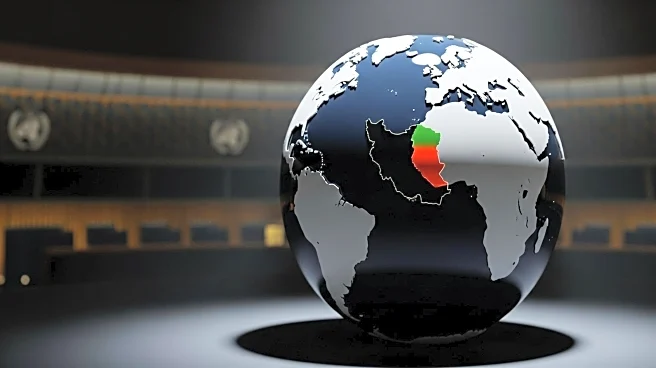What's Happening?
The U.N. Security Council did not pass a resolution to stop the reimposition of sanctions on Iran, as outlined in the 2015 nuclear deal. The resolution, proposed by South Korea, failed to gain the necessary support, with only China, Russia, Pakistan, and Algeria voting in favor. France, Germany, and the UK triggered the snapback mechanism last month, which automatically reinstates sanctions unless halted by the Security Council. The sanctions include arms embargoes and restrictions on nuclear technology. Iran's Foreign Ministry has expressed its commitment to diplomacy but reserves the right to respond to unlawful actions.
Why It's Important?
The failure to halt sanctions reimposition could heighten tensions between Iran and Western countries, potentially impacting global diplomatic relations and nuclear non-proliferation efforts. Iran's threat to withdraw from the Nuclear Nonproliferation Treaty could lead to further instability in the region. The situation underscores the challenges in achieving consensus within the Security Council and the complexities of international diplomacy regarding nuclear issues.
What's Next?
Diplomatic efforts may continue as European countries seek to negotiate with Iran to prevent the full reimposition of sanctions. Iran's response to the sanctions and its future actions regarding the Nuclear Nonproliferation Treaty will be closely monitored. The upcoming U.N. General Assembly may provide a platform for further discussions and negotiations.









